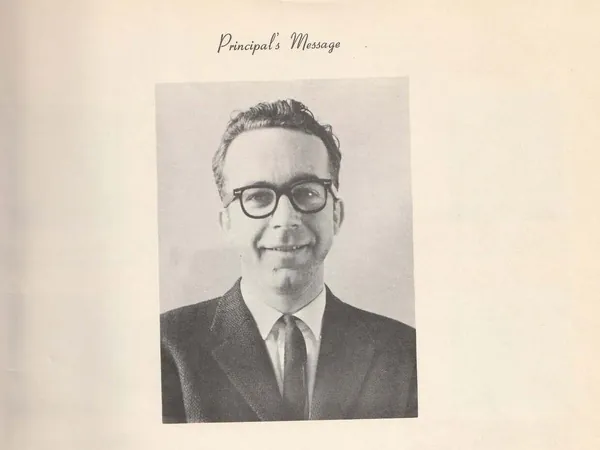
Are Ezra and Leanne Ready for Retirement? Here’s How They Can Secure Their Future!
2025-04-05
Author: Amelia
Ezra and Leanne, both 63, are on the verge of retirement, hopeful yet anxious. With plans to retire at 65, they’re grappling with uncertainties about their financial security. Leanne expressed these concerns in an email: “We hope to retire at 65 but are afraid of the future and do not know if we can.”
Ezra earns a commendable salary of $95,000 annually in the hospitality industry, while Leanne brings home $84,000 as an administrative assistant. Despite their significant income, they’re feeling the pinch. They own two rental properties that, regrettably, have turned out to be more of a financial burden than a source of income, purchased initially to support their daughter’s dream of attending medical school—she’s now pursuing a master’s degree.
Leanne confesses, “Our situation— not knowing if we have enough, the tax consequences of selling the rentals—keeps me up at night. Will our money last for us to live comfortably until the end?” Their target retirement spending goal is set at $72,000 annually after taxes, but looming expenses could derail such hopes. They are anticipating costs like $30,000 for the first year of medical school for their daughter, $34,000 for dental work, $25,000 for their elder daughter’s wedding, and $40,000 for a new car.
To gain insight into their situation, they consulted Matthew Ardrey, a senior financial planner and portfolio manager at TriDelta Private Wealth in Toronto. He assessed that they have approximately $1.6 million in investment assets and cash, alongside $1.4 million in rental properties (adjusted for $800,000 in mortgages) and a home valued at $900,000, bringing their total net worth to about $3.1 million.
Currently, they are maximally contributing to their tax-free savings accounts (TFSA) and setting aside funds in their registered accounts. However, after retirement, only the TFSA contributions will continue. With monthly outgoings of about $5,900—rounded to $6,000 for forecasting purposes—they aim to maintain this spending throughout retirement.
Ardrey points out that selling their unprofitable rental properties could mitigate their financial strain. He suggests waiting until retirement to sell in a tax-efficient manner, possibly in different calendar years, to minimize capital gains tax. By 2027 and 2028, selling the properties could free up substantial funds for their daughter's education and other expenses.
Further complicating their retirement picture is the fact that they immigrated to Canada in 1994, which impacts their expected benefits under the Canada Pension Plan (CPP) and Old Age Security (OAS). With this data alone, they are projected to receive 70% of CPP benefits and 80% of OAS benefits—potentially higher if their former country has a reciprocal agreement with Canada.
Regarding their investment strategy, they currently have an asset allocation of 82% in stocks and 18% in cash/bonds. While this mix fosters growth, it also exposes them to volatility as they transition into retirement. Therefore, Ardrey recommends that they shift to a more balanced allocation focused on income generation.
Ultimately, Ardrey believes that Ezra and Leanne have a strong chance of achieving their retirement dreams, provided they meticulously track their actual spending and refine their investment strategies. His stress tests using Monte Carlo simulations—which evaluate the plan's success probability under various market conditions—indicate an impressive 100% chance of success under current assumptions. However, he urges caution, noting discrepancies in their spending reports—implying they may be underestimating how much they actually need.
With an annual net income, together with rent losses factored in, they are still managing to maintain a relatively comfortable lifestyle. Total assets amount to approximately $3.88 million, but their liabilities, particularly from rental properties, total $796,280, indicating they need to be strategic about divesting unprofitable ventures.
Ultimately, as Ezra and Leanne navigate these complexities, maintaining open lines of communication, setting clear retirement goals, and getting proactive about their financial planning can pave the way for a successful and financially secure retirement. Do they have what it takes to achieve their retirement goals? Only time will tell!









 Brasil (PT)
Brasil (PT)
 Canada (EN)
Canada (EN)
 Chile (ES)
Chile (ES)
 Česko (CS)
Česko (CS)
 대한민국 (KO)
대한민국 (KO)
 España (ES)
España (ES)
 France (FR)
France (FR)
 Hong Kong (EN)
Hong Kong (EN)
 Italia (IT)
Italia (IT)
 日本 (JA)
日本 (JA)
 Magyarország (HU)
Magyarország (HU)
 Norge (NO)
Norge (NO)
 Polska (PL)
Polska (PL)
 Schweiz (DE)
Schweiz (DE)
 Singapore (EN)
Singapore (EN)
 Sverige (SV)
Sverige (SV)
 Suomi (FI)
Suomi (FI)
 Türkiye (TR)
Türkiye (TR)
 الإمارات العربية المتحدة (AR)
الإمارات العربية المتحدة (AR)